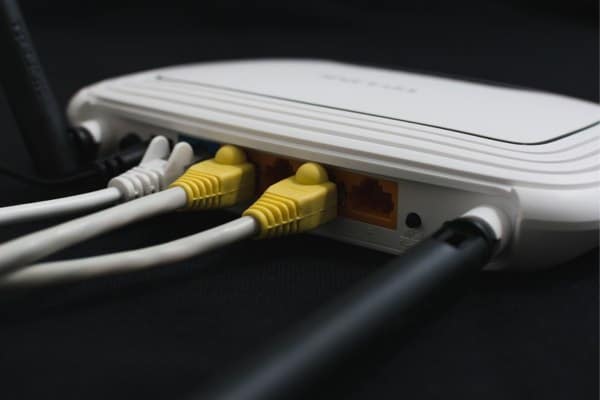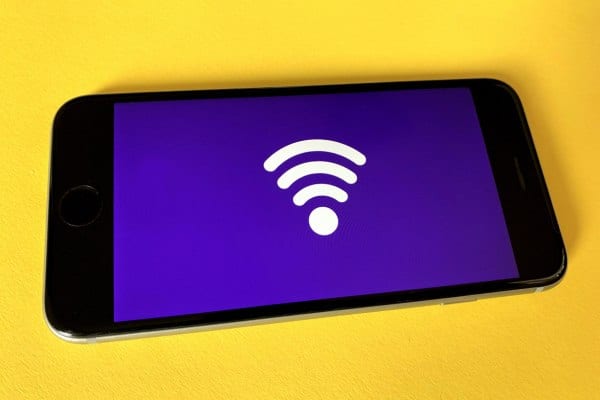This page may contain affiliate links. If you click and buy, we might get a small commission at no cost to you.
Nowadays, WiFi is becoming a need, rather than a luxury. The reason for this is that we live in a digital world where the internet is needed for almost everything, like getting access to work or school or even paying bills. Right now, every home has WiFi, and asking to use someone else’s WiFi is a regular thing that can test the bond between neighbors.
Due to this, most people wonder how to politely deny your neighbor WiFi, and this article will answer that question. We’ll show you how to handle this possibly awkward situation in a way that maintains good relationships with your neighbors while protecting your personal network and privacy.
How to politely deny your neighbor WiFi
You can simply change the password and that would be that. But there may be instances though where that could cause a conflict that you don’t want. So first you may want to:
1. Have a face-to-face conversation with them

A face-to-face conversation would be the most effective approach to addressing your neighbor’s interest in connecting to your WiFi. Expressing your message in person adds a genuine touch and minimizes the chances of your neighbor misinterpreting your intentions.
Open and honest communication is important when dealing with sensitive matters like this, so it’s important to approach this situation with respect and consideration for others’ feelings.
Even if you have an advantage, it’s crucial to communicate in a way that is clear and understandable to them. Begin the conversation by offering a polite greeting and engaging in some casual conversation to establish a relaxed environment.
Next, smoothly transition to the subject of your WiFi. This shows that you care about your neighbor and the relationship you have with them and that your choice is based on real concerns, not a desire to start an argument.
2. Explain the reasons why you can’t share it with anyone else
We all have our own personal reasons for not sharing WiFi with others, so it’ll be best to explain it to them. Perhaps the reason behind this could be related to network security concerns or limitations in bandwidth, and your internet plan might not be able to handle additional users without compromising everyone’s experience.
You may be paying for a specific level of service, and if you decide to start sharing it, it could end up costing you more money. Communicating openly about why you’ve made this choice will help your neighbor respect it rather than take it personally.
Whatever your reasons may be, outline them and be firm about why you can’t share your wifi.
3. Suggest alternatives
If they’re persistently requesting the password to access your WiFi, consider suggesting alternative solutions to address their needs. It may be helpful to ask them to explore options for upgrading their current internet plan to better meet their needs or even assist them in applying for a WiFi service so that they can have their own connection.
If cost is a concern, they can also consider exploring more affordable alternatives or taking advantage of any promotions offered by their current provider.
You may also give them information about some of the public WiFi options available in the area, such as libraries, cafes, or public hotspots. These can be convenient alternatives for occasional use.
4. Protect your network
If they’re good neighbors, after following the guides mentioned above, these people will likely choose to respect and consider your reasons. However, if they aren’t willing to understand your reasons and insist on using your WiFi in an unethical manner, it’s important to take appropriate measures to safeguard your WiFi from them.
Change your password
If you previously shared your WiFi password and now wish to limit their usage, it would be advisable to change the password in order to prevent their access. If you’re the owner, feel free to change your password whenever you need to, especially if there’s an unfamiliar device attempting to connect. The easiest strategy to stop someone from using your WiFi without your consent will be to do this.
Upgrade the firmware on your router

Changing your device’s password is important, but you should also check if there are any firmware updates for your router, as this determines how it operates. You’ll be able to patch problems, which, in turn, will protect you from any security vulnerabilities that might exist.
You can hide your SSID
The name of a wireless network is referred to as its Service Set Identifier, or SSID for short. If your neighbors want to connect to your WiFi, they’ll look for the SSID to find it. If you hide this, the router won’t be able to broadcast the name of the wireless network, which will make it unrecognizable to everyone else.
Conclusion
Properly dealing with the sensitive scenario of refusing your neighbor’s request for WiFi access requires open and respectful communication while acknowledging personal boundaries.
To maintain a positive relationship while safeguarding your privacy and security, it’s important to explain your reasons transparently and even suggest alternative solutions.



